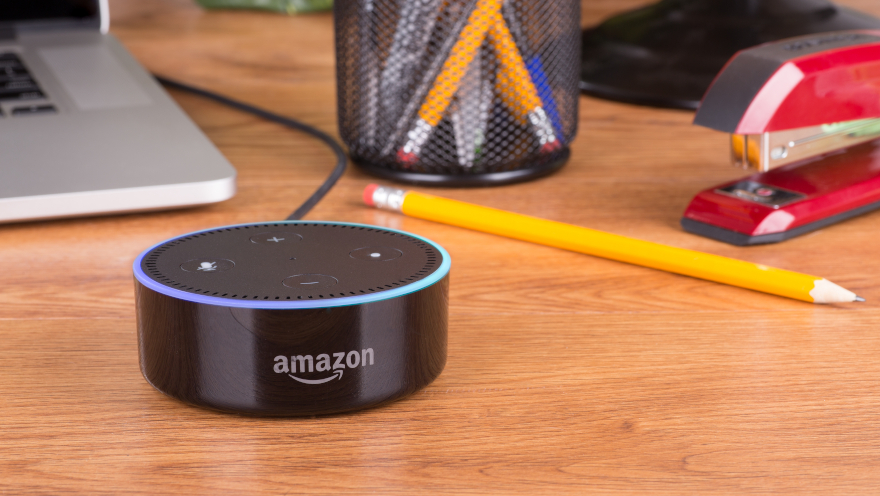Canadian government uses Amazon’s Alexa to enhance consumer vehicle recall knowledge

Photo credit: Charles Brutlag/Shutterstock.com
By subscribing, you agree to receive communications from Auto Remarketing and our partners in accordance with our Privacy Policy. We may share your information with select partners and sponsors who may contact you about their products and services. You may unsubscribe at any time.
TORONTO –
Late this summer, Transport Canada announced it was utilizing Amazon’s Alexa for a safety-based service that engages the Amazon tool in a new way — making sure consumers stay up to date on the latest vehicle recalls that impact their regular day-to-day use vehicles.
Simon Rivet, senior adviser for media relations in the communications group for Transport Canada at the Government of Canada, said, “The main drivers for the Alexa project included exploring the use cases for emerging technologies, testing non-traditional use cases for service delivery for users who face barriers, and looking a new ways to utilize the Government of Canada’s open data sets.”
This initiative also supported the department’s ongoing efforts to improve recall completion rates, he added. And Rivet shared that Transport Canada is always looking for innovative ways to ensure that its recall material is easily accessible to all Canadians.
“This project will help increase accessibility by providing another way of sharing and obtaining the information,” he said.
On top of a variety of non-web-based options, currently, some auto manufacturers have their own, web-based search tools where a user can use their vehicle identification number to find out if there are any open recalls that may affect their specific vehicle.
And Transport Canada maintains a list of websites for major manufacturers on its own website, and links to check recalls, as well.
Subscribe to Auto Remarketing to stay informed and stay ahead.
By subscribing, you agree to receive communications from Auto Remarketing and our partners in accordance with our Privacy Policy. We may share your information with select partners and sponsors who may contact you about their products and services. You may unsubscribe at any time.
All of these methods, including the new Alexa option, enable consumers to access vehicle safety recall information in a more convenient manner.
“The growing popularity of personal voice activated assistant technology is another method for consumers to easily access this information,” Rivet said.
So, how does it work?
Under the new Transport Canada pilot program, users can say, “Alexa, open vehicle recalls.”
Once a user has enabled and opened the skill, Alexa will ask several questions in regards to the vehicle make, model and year.
With this information, Alexa will attempt to find any recall by using the Government Canada API, which connects to the department’s database of recalls.
“If you allowed phone number access in the options, Alexa will send an SMS with a link to the recall(s) found on Transport Canada website which hosts the same information,” Rivet said.
Although media coverage and user interaction has been positive for the new tool, the usage rates for the skill are not high just yet.
That said, this can be explained in part by the general adoption rates for Alexa.
Skills usage often take time to adopt “as it is an innovative tool, and users are still learning how to enable a skill,” Rivet added.
Whether this is a sign of more programs like this to come, we will have to wait and see, but Transport Canada is already working and sharing results with other federal departments.
“We will be assessing and sharing the results of this pilot project with other departments which will help determine a way forward in the coming months,” he said.
As for auto in particular, Alexa and tools like it are likely to play a large role in mobility, driving habits and even vehicle interiors, for years to come.
“Voice-enabled technology is an additional innovative tool that allows us to share information with the public,” said Rivet.
And this goes obviously goes beyond technology for finding the nearest restaurant.
Amazon’s media and communications department was contacted for this story for comment, but response had not yet been received upon publication.


